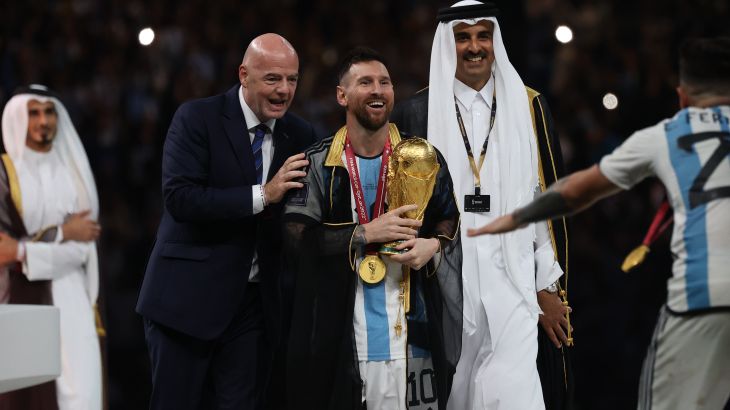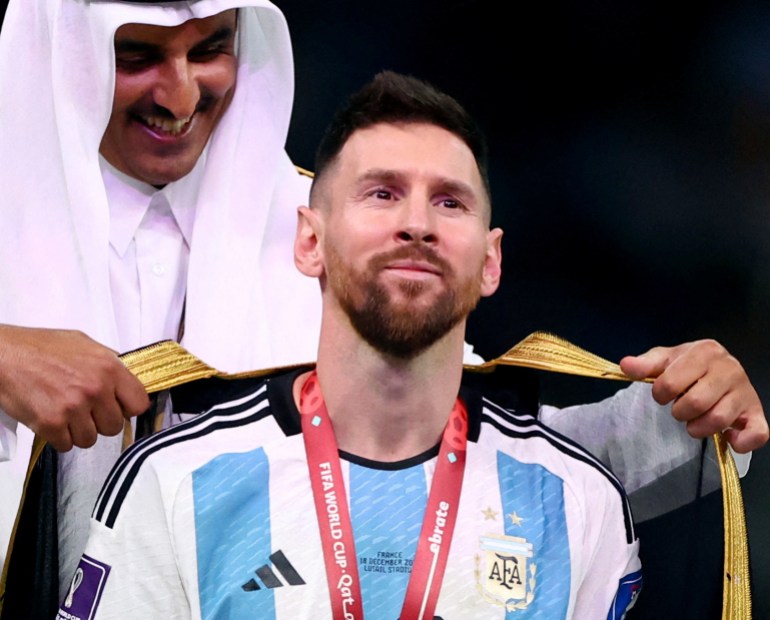What is a bisht and why was Messi wearing it at the World Cup?
The emir of Qatar put a bisht on Argentina captain Messi during the World Cup closing ceremony.

At the World Cup trophy presentation after Argentina’s win over France in the final on Sunday, Lionel Messi was offered a bisht, a traditional Arab cloak, to wear by the emir of Qatar.
Messi allowed Sheikh Tamim bin Hamad Al Thani to place the robe on his shoulders before taking the World Cup trophy from FIFA President Gianni Infantino and lifting it in front of his ecstatic teammates.
Keep reading
list of 4 itemsFrance fans hail Mbappe’s dazzling World Cup final performance
Messi says he will not retire from Argentinian national team
Tears of relief and joy as Messi lifts World Cup for Argentina
What is a bisht?
The bisht is a long cloak made out of light, often sheer, material with trimming made out of real gold that is worn over a white thobe.
Primarily worn in the Gulf, it is a garment that has been worn for centuries during special occasions. It is viewed as a sign of appreciation and respect and is typically worn by top officials such as politicians, sheikhs and other high-status individuals.

What is special about the bisht?
Mustafa Baig, a lecturer in Islamic studies at the University of Exeter, told the dpa news agency that the bisht is a formal robe worn by royalty, dignitaries, grooms on their wedding day, and graduates at graduation ceremonies.
“So only a select few people would actually wear the bisht,” he said. “They basically honoured him [Messi] by putting it over his shoulders. It’s like a mark of honour, and just kind of a cultural welcoming and a cultural acceptance.”
Baig said it is also representative of Qatar’s national dress – but only on important occasions.
“And this is a top occasion. I mean, there’s probably no bigger occasion, so they put it on him as a mark of honour,” he said.
Baig said he saw it as “an embrace by Messi of the local culture”, adding that it was “a pretty cool thing” for Qatar to do and “smart thinking” on their behalf.
What did the organisers say?
Hassan al-Thawadi, secretary-general of Qatar’s World Cup organising committee, said: “It is a dress for an official occasion and worn for celebrations. This was a celebration of Messi.
“The World Cup had the opportunity to showcase to the world our Arab and Muslim culture. This was not about Qatar, it was a regional celebration.”